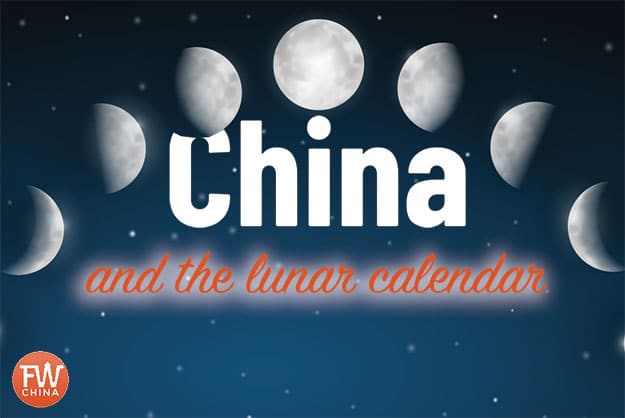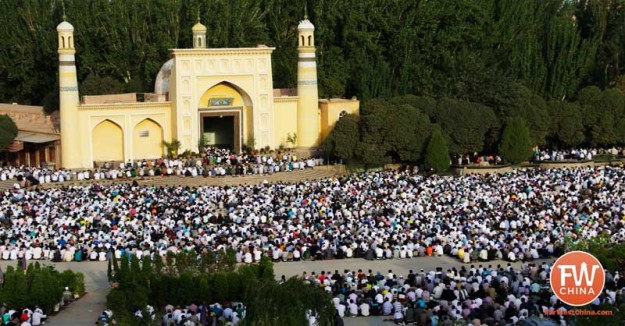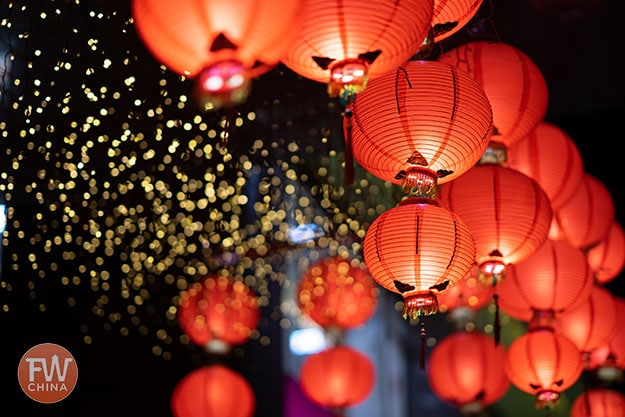Chinese Lunar Calendar and the Roaming Holidays
Although China uses the Gregorian calendar for official dates, the country still celebrates many holidays on the Chinese lunar calendar. This is true not only for inner China, but also for all of the Muslim groups (Uyghur, Hui, etc.) that populate the Xinjiang region.

If you’re in the mood for a minor headache today, I suggest you do a quick study of the lunar calendar and try to explain it to a friend.
Even my own experience living with the Chinese lunar calendar has left me scratching my head.
Although the majority of the world has migrated to the Gregorian calendar, there are two other calendars that are used by large populations of the world:
- Lunisolar (much of traditional Asia, including China)
- Islamic Lunar Calendar (the Muslim world)
This usually doesn’t have much effect on day-to-day life…
…unless there’s a major traditional holiday on the horizon.
The Lunar Calendar: A Quick Explanation
For those who need a quick refresher, the lunar calendar is a tracking of time that is based on the cycles of the moon.
This stands in contrast to the Gregorian calendar which measures time based on the earth’s trips around the sun (“solar”).
An exact lunar cycle is 29.53 days. Since you can’t have a “half day”, in practice this means that some lunar months are 29 days and others are 30.
Putting 12 of these lunar cycles together (a “lunar year”) equals out to slightly over 354 days, which if you do the math…
…make a lunar year almost 11 days shorter than a solar year.
The lunisolar calendar upon which the Chinese lunar calendar is built adjusts for this difference based on the sun. The Islamic lunar calendar does not.
This is the difference between Chinese lunar holidays and Muslim lunar holidays.
Comparison: Chinese & Muslim Holidays
An example of this plays out beautifully in the region of Xinjiang, China’s largest and westernmost region.
It’s here where the split population of Han Chinese and majority Uyghur Muslims celebrate their own cultural holidays based on different lunar calendars.
Let’s look at the two most common:
Chinese New Year (Chinese Lunar Calendar)
Although the Chinese New Year is, without a doubt, the largest and most popular Chinese holiday, it’s also a pain to nail down the date.
The date for Chinese New Year changes each year, falling sometime between late January and early February.
If you live in China or have Chinese friends you should have some fun and ask them when the Chinese New Year is this year to see if they can tell you the date.
Odds are they might be able to tell you a general time (“Uh…sometime towards the end of January, I think?“), but rarely the exact date.
Why is this so difficult?
It’s because China celebrates the holiday on the lunisolar calendar. It’s the lunar calendar that requires adjustments based on the sun. Calculations can be made and there are Chinese holiday calendars you can reference, but for the most part you won’t know when the Chinese New Year is until it’s only a month or two away.
Corban Festival (Islamic Lunar Calendar)
For the Uyghur Muslims of Xinjiang, one of the biggest festivals is the Corban Festival (also spelled “Qurban”).
This festival is a public holiday for the entire province, meaning that while everybody else in China works on this day, all of us here in Xinjiang have the day off.
If you happen to be Muslim, you get Wednesday and Thursday off, too. Traditionally, this is a time when you gather to pray at the local mosque (although this is harder to do now with Xinjiang’s heavy restrictions).

If you ask a Muslim, they might tell you that their holidays are on the same day every year – and according to the Islamic calendar (the lunar calendar) they are.
But the difference between China’s lunar calendar and the Islamic lunar calendar is that the 11 day difference isn’t compensated for with an adjustment.
For this reason, all the Muslim holidays magically move about 11 days earlier each year.
If your math isn’t too rusty you can easily calculate that this means that any given Muslim holiday makes its way through each of the 4 seasons every 33 years.
Throughout my 10 years of living in Xinjiang, I’ve enjoyed the Uyghur Corban festival celebrations in both the summer and fall seasons.
At Least the Rest of Us aren’t Crazy, Right?
The Chinese lunar calendar and the Islamic calendar make my head spin, to be honest.
I’m happy to know that my favorite American holidays are easy to figure out. We not crazy enough to have roaming holidays!
Thanksgiving will still fall on the 4th Thursday in November.
Christmas will still be on December 25th.
The 4th of July will be on, well…you know.
And Easter will be on…
…oh, crap. I guess we are crazy after all.









